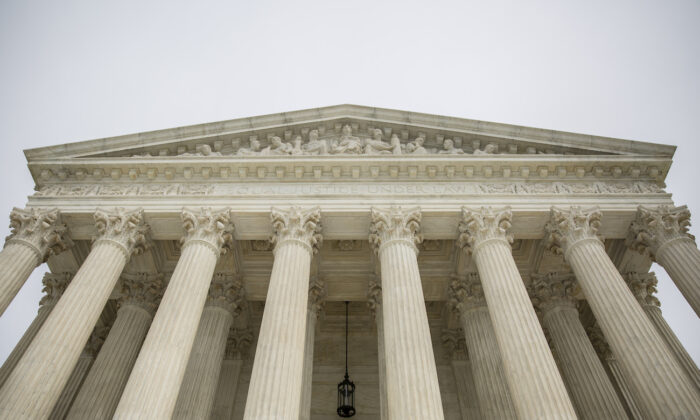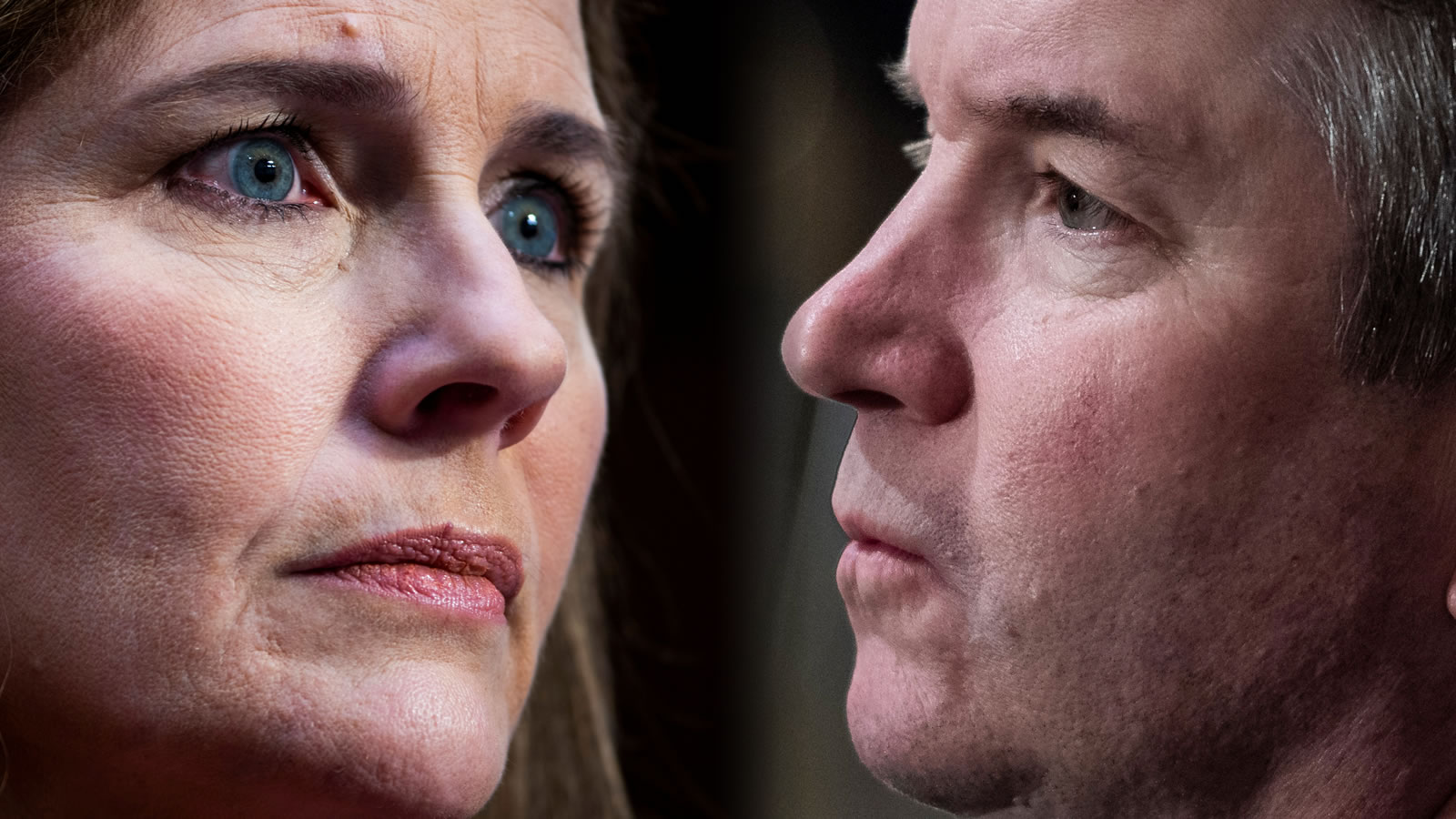 |
| Samira Bouaou/The Epoch Times |
The U.S. Supreme Court on Friday rejected an emergency request by health care workers seeking a religious exemption to the state of Maine’s COVID-19 vaccine mandate.
The court’s decision not to grant the immediate relief for the health care workers until it decides to review the case, means the state’s COVID-19 vaccine mandate will take effect while litigation continues in lower courts.
The Supreme Court did not explain its action—typical in emergency appeals. But three conservative-leaning justices provided a dissenting opinion saying they would have granted the emergency request.
Maine is not offering a religious exemption to its COVID-19 mandate in hospital and nursing homes, which means if workers opt to not take the vaccine, they risk losing their jobs. The deadline for health care workers to be vaccinated in the state was by the start of October, but the state government said it would not enforce the mandate until Friday.
“This case presents an important constitutional question, a serious error, and an irreparable injury. Where many other States have adopted religious exemptions, Maine has charted a different course,” Justice Neil Gorsuch wrote in a dissenting opinion (pdf), joined by Justice Clarence Thomas and Justice Samuel Alito. --->READ MORE HERE
 |
| Jim Lo ScalzoJabin Botsford/Reuters |
They joined Roberts and the Court’s progressives in declining relief to Maine health-care providers, who must now be vaccinated against their beliefs or lose their jobs.
Late Friday, Justices Amy Coney Barrett and Brett Kavanaugh joined Chief Justice John Roberts and the Supreme Court’s three progressives in denying a preliminary injunction to a group of medical professionals who sought to be exempted from Maine’s vaccine mandate because of their religious convictions.
Justice Neil Gorsuch filed a compelling dissent in the case, John Does 1-3 v. Mills, joined by his fellow conservative justices, Clarence Thomas and Samuel Alito. The dissenters stressed that, besides being likely to win on the merits, the religious objectors were merely asking to maintain the status quo — to keep their jobs despite being unvaccinated — while the Court decided whether to grant a full review of their case. In turning them down, Barrett and Kavanaugh dodged the weighty civil-rights issues, seeing the case, instead, as an opportunity to gripe about the Court’s emergency docket.
Maine now requires certain health-care workers to be vaccinated or face the loss of their jobs and medical practices. Unlike many such mandates, Maine’s does not provide an exemption for religious objectors. The plaintiffs are medical professionals who object to the vaccine, and thus the mandate, based on their Christian faith. Specifically, because fetal tissue from terminated pregnancies was used in developing the approved vaccines, the plaintiffs see immunization as an implicit endorsement of abortion, in violation of their religious beliefs. The sincerity of those beliefs is not in dispute. --->READ MORE HEREFollow links below to related stories:
Supreme Court Justices Brett Kavanaugh and Amy Coney Barrett side with liberal justices, decline to block Maine's vaccine mandate for health workers with religious objections
Justice Gorsuch Illustrates How Smith-post-Fulton Should Be Applied
If you like what you see, please "Like" us on Facebook either here or here. Please follow us on Twitter here.

No comments:
Post a Comment